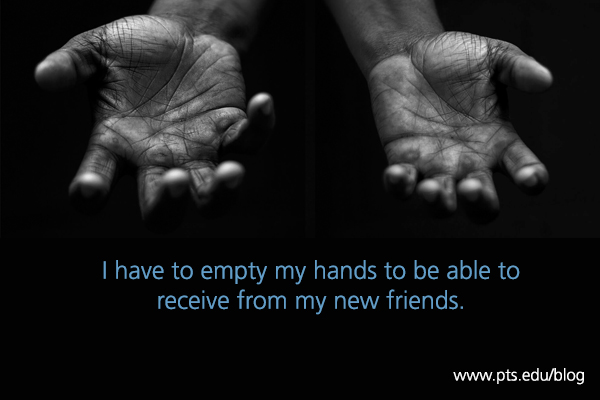The temptation is strong and will grow as your mission trip departure date approaches.
The mere thought of traveling to and working in Third World communities is enough to get our anxiety working overtime: Will I be safe? Can I drink the water? Will I be able to handle the poverty? What will it be like to be the wealthiest person the community may have ever met (I, who have never considered myself wealthy in the least!)? How will I respond to people in need—to hungry children? How will the trip change me—in my understanding of how God works . . . in relationship with my modest “wealth”?
This internal anxiety, though uncomfortable, can be a God-given instrument of deep learning and personal change (precisely why I signed up for this trip anyway!). It signals I’m crossing over, stepping onto that holy ground of encounter with people whose life assumptions are quite different from mine. And a faith which I hope to understand. It prepares my heart to receive the unexpected. And, it reminds me that God is in charge of the trip from start to finish.
But as the anxiety grows, most short-term missionaries begin to stock up on “gifts”—pens, candy, spiral notebooks, toothbrushes, etc. Well, maybe “gift” is the wrong word if a gift is meant to symbolize the relationship between two people. In fact, the items many groups leave behind in the community tell the receivers little about who we are, and clearly reveals that we know precious little about them. Often, all it communicates is that I assume that the receiver needs it. (If I give a friend a toothbrush, I’m bound to get a strange look.)
Meeting New Friends
To truly meet a new friend, I have to set aside previously-held assumptions, my degrees and status, and my power, and receive the person for who they are. For a long, uncomfortable moment, my complete ignorance of the local language reduces me from a respected professional to a mere toddler, babbling phrase-book greetings to the raucous delight of the host community’s children. In a flash, I realize how accustomed I have become to my personal “accessories”—my status and specialized knowledge about all kinds of things that, suddenly, don’t seem very important. In a way, these are the things that make me who I am. Or do they? I blush, bowing my head under the weight of the revelation. Tears well up in my eyes. I smile. And the host community’s Welcome Committee somehow senses the moment, surges forward, and embraces me. All 34 adults and all 52 children—the little ones, repeatedly. (“I’ve never been hugged by 86 people in a row in my entire life!”, I complain later, beaming). The awkward yet powerful initial encounter set the stage for the whole week of work and transformed us into the impossible: friends.
Embracing with Empty Hands
This is why the mission pastor told us not to load ourselves down with “gift” items—we would have transformed the moment of powerful encounter into a “give-me” circus with kids yelling and grabbing to get more. Unknowingly, we would have flaunted our wealth and left powerful expectations for the next church group coming to this community. A proverb from western Ethiopia puts is this way: “We only embrace with empty hands.”
Don’t get me wrong. To take a simple gift or two on a mission trip is a beautiful act. To give something that speaks of where I come from to that special new friend who teaches me something surprising about myself and about God. And we can set aside the rest of the clutter which really serves only to make us feel better about returning to our comfortable homes and hot showers.
I have to empty my hands to be able to receive from my new friends.
For our calling is to engage in “mission in the way of Jesus Christ”, following the One who embodied a deep commitment to solidarity. Jesus stands in solidarity with people caught in the line of fire, those trapped under the weight of systemic oppression, people at their wits’ end due to hunger or police violence or injustice. Though we can’t change the world in a day (and sometimes I use that as an excuse to avoid taking the first step!), we can choose to stand with those who are hurting. In a time of discouragement and frustration, how might you join with Jesus Christ who is today standing in solidarity with the poor and oppressed?
The Rev. Dr. Hunter Farrell is the director of the Seminary’s World Mission Initiative. Additionally he teaches mission courses at the Seminary including the M.Div. required class Intercultural Experiential Learning. During the 2019 January-Term, groups traveled to Cuba and studied mission in context at Evangelical Theological Seminary as well as the Philippines where they learned about the Churches’ response to the environmental crises with Silliman University.


great article…
Great one i like your words.